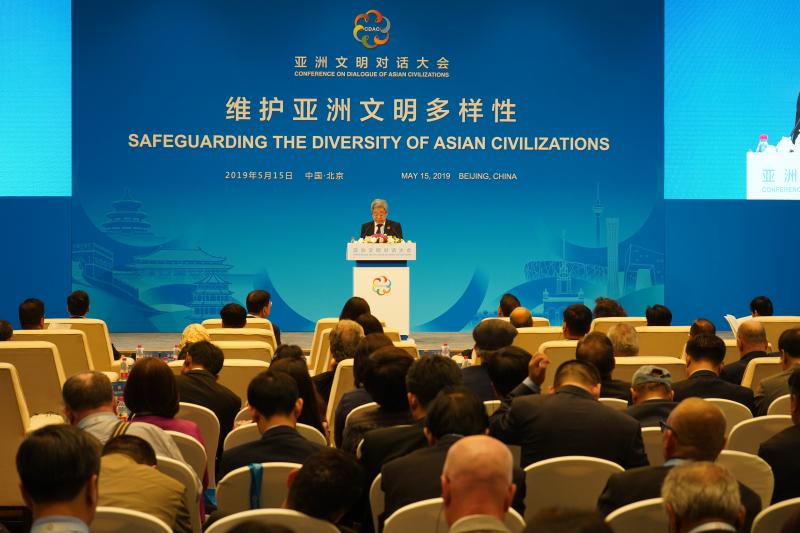Educational cooperation key to societal exchange: CDAC panel
- By Zhang Liying
 0 Comment(s)
0 Comment(s) Print
Print E-mail China.org.cn, May 16, 2019
E-mail China.org.cn, May 16, 2019

Educational cooperation can boost exchange and reciprocal learning in many other sectors, thus helping to strengthen people-to-people bonds among different countries and promote the common development of societies.
This was one of the views put forth by participants of a panel on "Safeguarding the Diversity of Asian Civilizations" during the ongoing Conference on Dialogue of Asian Civilizations in Beijing on Wednesday.
China's Minister of Education Chen Baosheng said in his speech that education forms a basis for exchange and mutual learning among diverse societies, as it sows the seeds of peace and cooperation in the minds of people around the world.
"We need to promote the mutual recognition of academic degrees, the adoption of uniform educational standards and the sharing of educational experiences, so as to better unlock the role of education in the inheritance and innovative development of civilizations," Chen said.
He shared that China, with the world's largest education system, has found an effective path of socialist education with Chinese characteristics, and is implementing the Education Modernization 2035 plan.
At the same time, China seeks deeper cooperation through such efforts as upgrading the Education Action Plan for the Belt and Road Initiative, and welcomes other Asian countries "to take the express train" of China's educational development, Chen added.
Utak Chung, an adviser at the Seoul Metropolitan Office of Education, said on the sidelines of the panel that educational exchanges serve as a bridge to enhance dialogue between different civilizations, and in turn create greater consensus for peace and common prosperity.
Chung suggested a concrete mechanism, such as a multilateral organization, be introduced to better promote educational exchange among Asian countries.
B.R. Deepak, a professor at India's Jawaharlal Nehru University, called educational cooperation an important pillar of people-to-people exchanges.
He said that when students study in another country, they not only deepen their understanding of local people, but also get the opportunity to take part in activities in many other fields and to share their indigenous culture.
Compared to top-down government initiatives, this bottom-up approach can better extend reciprocal understanding and forge closer ties with different peoples, which is crucial to building lasting peace and common development in the world, Deepak said.
He called for improvement of visa regulations by Asian countries to facilitate the flow of personnel, especially those in the education sector. "The free flow of people should be promoted, not hindered," he said.
Deepak also emphasized the importance of scholarships in educational cooperation, saying that China has done a good job in offering scholarships to foreign students, and other Asian countries need to establish or jointly fund similar scholarships.
The themed panel brought together about 150 experts from Asia and beyond, as well as representatives from United Nations Educational, Scientific and Cultural Organization (UNESCO) and other UN agencies, to discuss how to safeguard the diversity of Asian civilizations while still promoting shared values and common heritage.
The event also witnessed the signing of an agreement between China and UNESCO to support the organization's project "Reinforcing the Capacity and Contribution of Young Researchers to the Silk Roads."






Go to Forum >>0 Comment(s)